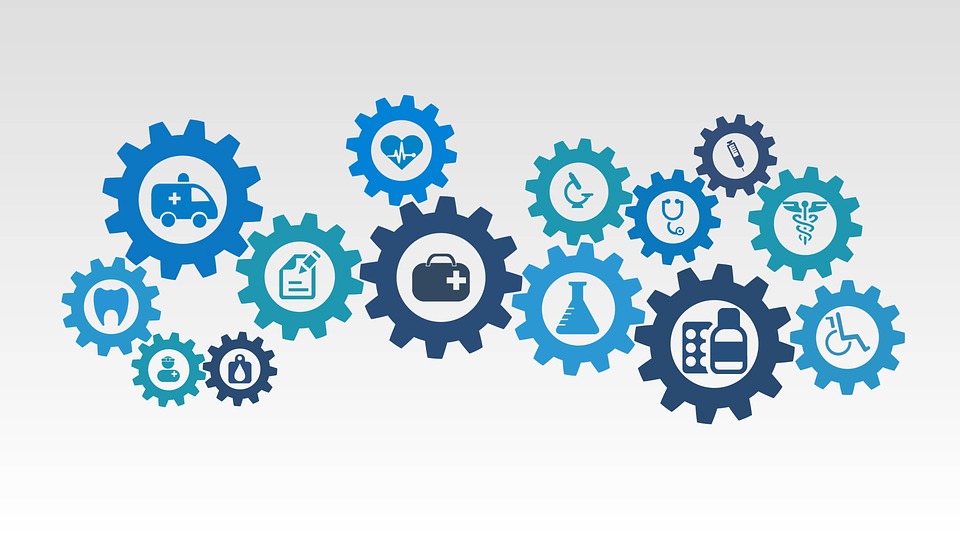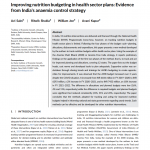
Scaling the Mountain of Grand Corruption in the Healthcare Sector
10 August 2019
This blog is part of a series. The first blog can be found here.
In this, my final blog on tackling corruption in the health sector, I focus on the menace of grand corruption, which is corruption at the highest level. From a generic point of view, two strategies are nearly universally required to tackle grand corruption in any professional sector.
First, there must be an involvement of the professional regulatory bodies concerned in the effort to eliminate corruption. All professional bodies should be educated to realise that corruption is killing them as professionals and that their trade may ultimately cease to be recognised as a profession. A sense of professional self-regulation should be instituted among the various professional bodies, particularly the Medical Council of India (MCI) and the various doctor’s associations.
Second, it is important to target high profile but corrupt individuals and bodies and prosecute them. This can have a deterrent effect by sending ripples of fear down the line, that no longer will business as usual be tolerated. An example is the expose of the corruption that exists in the MCI, a few years back.
It makes sense to introduce the ‘integrity pact’ concept into all forms of procurement for the medical profession, whether in the public or private sector. An integrity pact will commit all players that they will not adopt corrupt practices whenever procuring, or bidding for procurement contracts. Such an approach could bind pharmaceutical companies also, and could reduce the kickbacks in procurement of (or showing a particular preference for) medicines, lab services etc.
More stringent laws to curb some of the grey area practices may be required. In the US, the ‘Stark’ law describes medical-related offences, declaring them as criminal acts. There is no such law in India, which defines and criminalises many acts that are considered prima facie unethical and even criminal, but which continue as they pertain to the grey area that separates corruption from sharp business practice.
One cannot reduce grand corruption in the health care sector without coming down heavily on corruption in the pharmaceutical profession. There is a lack of oversight over unethical marketing practices adopted by pharmaceutical companies. A strict watch should be kept on these and companies should be named and shamed for offering gifts and other temptations to doctors, which even include foreign trips.
It may be necessary to bring more drugs under a price control mechanism, through an essential drugs list, with restrictions to ensure controls on the cost of patents, R&D and royalties.
Given that there are many branded versions of generic drugs available in the market, there ought to be guidelines that mandate doctors to prescribe at least 3 options whenever prescribing medicines, so that the consumer has a wider choice to purchase different brands of the same generic medicine.
Purchase committees will need to be created in hospitals with full transparency. Every hospital will need the presence of private individuals with high reputation on every purchase committee.
The purchase committee will need to work under the framework of a hospital drug purchase policy, which will also be made transparent. Some of the ingredients of a hospital drug purchase policy could include:
- Removing the individual incentive to receive kickbacks by mandating that any discount given by pharma companies, goes to the patient and not to the doctor concerned.
- Restrict the discretion available to make purchases;
- Direct that doctors only prescribe generic medicines, never brands and that the pharmacy purchase committee selects the cheapest medicine brand.
Kickbacks in the pharma industry can also be revealed through treatment audit.
Finally, there is a need to open up discussions on these sensitive aspects of corruption. One must encourage introspection, confession and whistleblowing by those who are seeking a change of heart. It is important to encourage those who suffer from remorse to not do so in silence, but to come out into the public space and come clean. The most important step in the long journey to cure corruption is to recognise it exists and speak openly about it.
When large numbers of the medical community recognise that there is widespread corruption amongst doctors, when they comes out and discuss these matters with the intention of self-regulation, then it can restore faith of the people in the medical profession.
——————————-
References:
- Corruption in the Health Sector: U4 Issue 2008:10; U4 Anti-Corruption Resource Centre
- Mapping accountability in the health sector and developing a sectoral assessment framework for Mongolia, UNDP Regional Centre in Bangkok
- Corruption in the Health Sector by M. J. Mwaffisi, Permanent Secretary, Ministry Of Health, Dar Es Salaam presented at the 9th International Anti-Corruption Conference
- Website of Transparency International, Bangladesh (http://www.ti-bangladesh.org/)
- Website of the Indian Journal of Medical Ethics (http://ijme.in/)
- Comments sent by Taryn Vian, PhD, Associate Professor, Department of International Health, Boston University School of Public Health in a correspondence conducted in 2011
- Discussion with various doctors and healthcare providers on these matters





